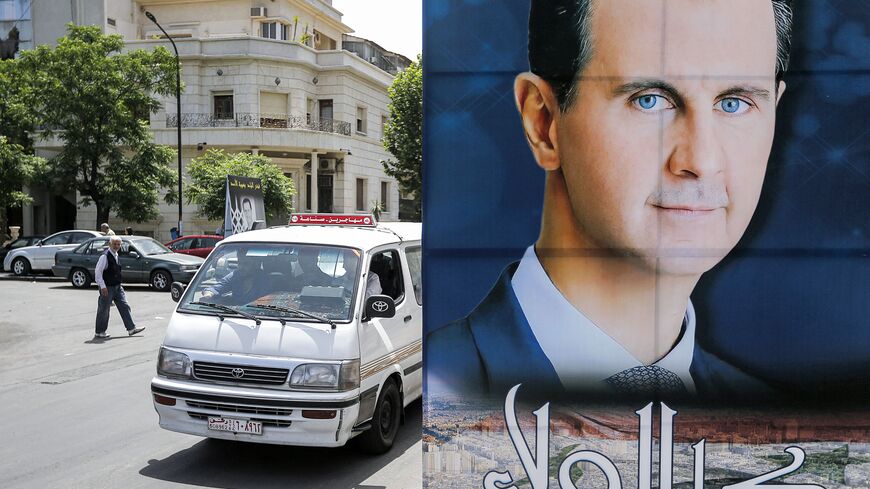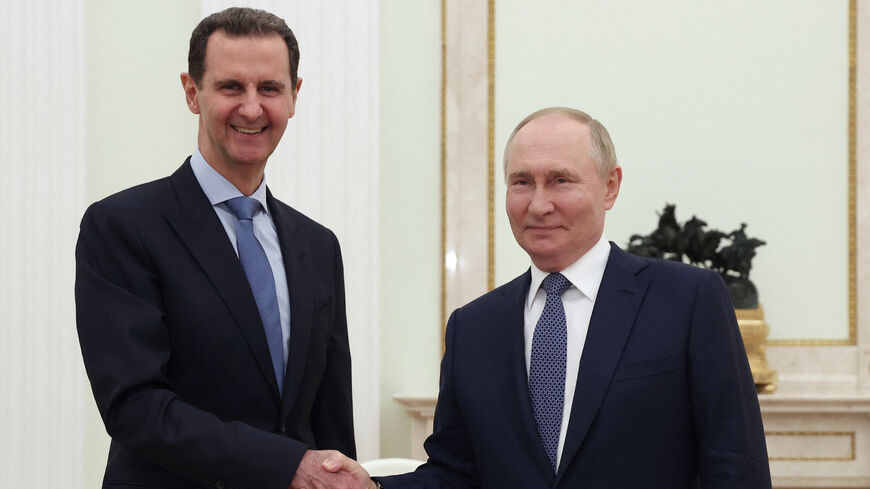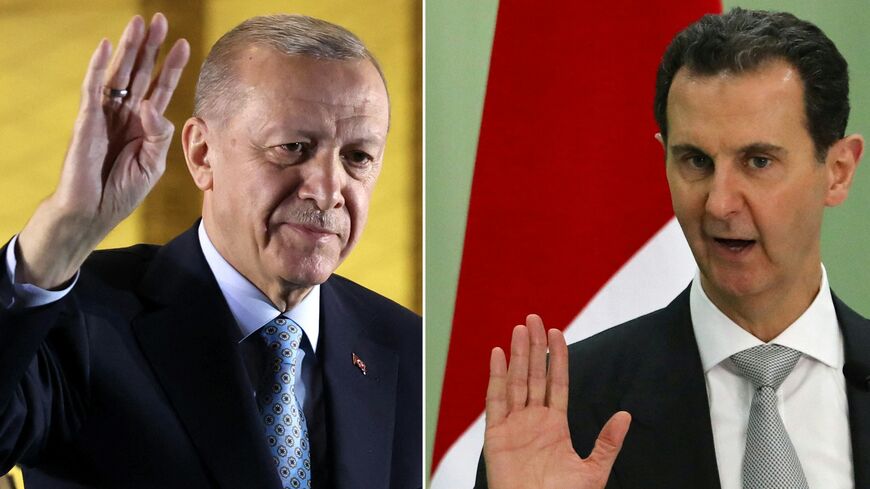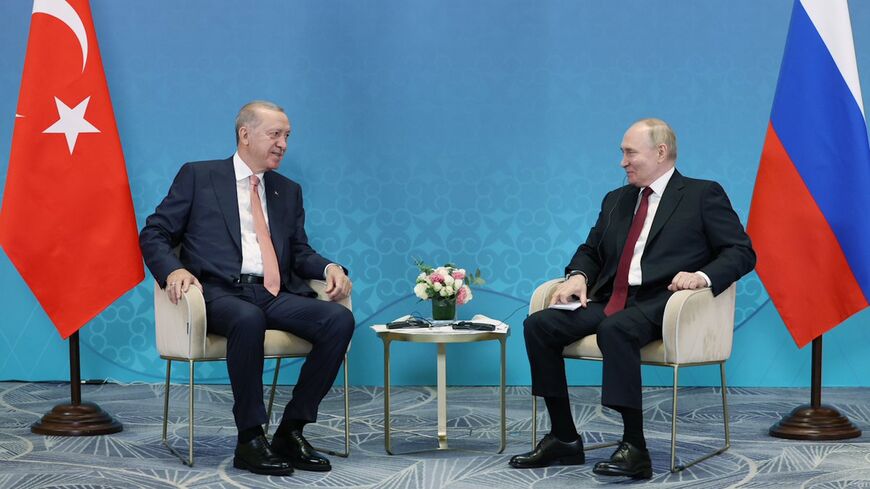Erdogan open to hosting Assad, Putin as Syria-Turkey channels widen
The remarks came as both Erdogan and Assad raised the possibility of resuming dialogue between Ankara and Damascus.

ANKARA — In the latest sign of ongoing rapprochement between Damascus and Ankara, Turkish President Recep Tayyip Erdogan said Friday that he might invite Syrian President Bashar al-Assad and Russian leader Vladimir Putin to Turkey.
“We may have an invitation for Mr. Putin and Bashar al-Assad. If Mr. Putin can visit Turkey, this can be the beginning of a new process,” Erdogan told reporters Thursday on his return flight from Kazakhstan, according to the text released by the Turkish Presidency’s Communication Directorate.
“The recent calm on the ground [in Syria] can open the door to peace with smart policies and solution-oriented approaches that are free from prejudices,” he added.
The remarks came as both Erdogan and Assad raised the possibility of resuming dialogue between Ankara and Damascus over the past few weeks. Erdogan met with Putin on Wednesday on the sidelines of a Shanghai Cooperation Organization summit in the Kazakh capital, where the two leaders discussed Syria among other issues.
“We will always stand by a prosperous, united and inclusive Syria embracing each other on the basis of a new social contract,” Erdogan added in reference to the UN-led talks to draft a new constitution for Syria that stalled in 2022.
The comments were apparently aimed at reassuring the Turkish-backed Syrian opposition groups that held mass demonstrations this week against Turkey in what analysts described as backlash against the Turkish president expressing openness to meeting with Assad.
The demonstrations against Turkey in northern Syria’s rebel-held areas led to seven deaths, according to the UK-based war monitor Syrian Observatory for Human Rights.
Calibrating his tone on a potential thaw with Assad Tuesday after the demonstrations ended, Erdogan vowed that Turkey would remember who “acted together with us.”
Speaking last week to Russia's Syria envoy, Alexander Lavrentyev, Assad said that “Syria has welcomed” all reconciliation initiatives with Turkey after Iraqi Prime Minister Mohammed Shia al-Sudani said last month that his government was working on reconciliation between Ankara and Damascus.
Russian-mediated direct talks between high-level Turkish and Syrian officials launched in 2022 faltered as the Syrian government pressed for Turkish forces to withdraw from the country. Russia and Iran are the main international backers of Assad's government.
Ankara fears that such a move could create a power vacuum that could be filled by the US-allied and Kurdish-led Syrian Democratic Forces, which Turkey deems a top threat to its national security due to Ankara's own decades-old Kurdish problem at home. Turkey equates the Kurdish-led SDF with the outlawed Kurdistan Workers Party, which has been waging an armed campaign for Kurdish self-rule inside Turkey since 1984. The SDF is a major ally of the US-led international coalition against the Islamic State in parts of north and eastern Syria.
Turkey’s main motivation to resume the talks with Assad is crushing the de facto Kurdish-led autonomous region in northern and eastern Syria, which is under the control of the SDF.
Erdogan said the instability in Syria was “providing space for terrorist organizations,” particularly the SDF. “It is important to eradicate these terrorist structures,” Erdogan said.
Ankara is also seeking to ensure the return of some Syrian refugees to their homeland. Turkey is home to more than 3.2 million registered Syrians, according to official figures. The number of unregistered Syrians is unclear.
“The climate of peace that will emerge in Syria is also necessary for the return of millions of people scattered across various countries to their countries,” the Turkish president added.







